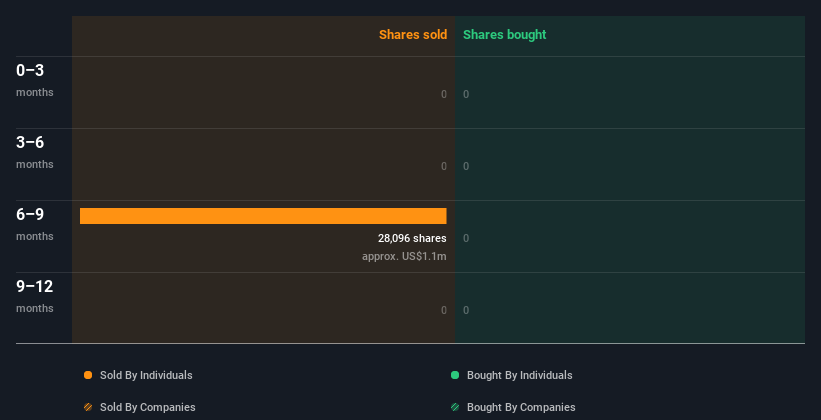One Citigroup Insider Has Reduced Their Stake
Looking at Citigroup Inc.'s (NYSE:C ) insider transactions over the last year, we can see that insiders were net sellers. That is, there were more number of shares sold by insiders than there were purchased.
Although we don't think shareholders should simply follow insider transactions, logic dictates you should pay some attention to whether insiders are buying or selling shares.
See our latest analysis for Citigroup
The Last 12 Months Of Insider Transactions At Citigroup
Over the last year, we can see that the biggest insider sale was by the Head of Markets, Andrew Morton, for US$1.1m worth of shares, at about US$40.66 per share. So it's clear an insider wanted to take some cash off the table, even below the current price of US$59.14. As a general rule we consider it to be discouraging when insiders are selling below the current price, because it suggests they were happy with a lower valuation. While insider selling is not a positive sign, we can't be sure if it does mean insiders think the shares are fully valued, so it's only a weak sign. We note that the biggest single sale was only 6.4% of Andrew Morton's holding. Andrew Morton was the only individual insider to sell shares in the last twelve months.
The chart below shows insider transactions (by companies and individuals) over the last year. If you click on the chart, you can see all the individual transactions, including the share price, individual, and the date!
For those who like to find winning investments this free list of growing companies with recent insider purchasing, could be just the ticket.
Insider Ownership
Many investors like to check how much of a company is owned by insiders. Usually, the higher the insider ownership, the more likely it is that insiders will be incentivised to build the company for the long term. Citigroup insiders own about US$232m worth of shares (which is 0.2% of the company). Most shareholders would be happy to see this sort of insider ownership, since it suggests that management incentives are well aligned with other shareholders.
So What Does This Data Suggest About Citigroup Insiders?
The fact that there have been no Citigroup insider transactions recently certainly doesn't bother us. While we feel good about high insider ownership of Citigroup, we can't say the same about the selling of shares. So while it's helpful to know what insiders are doing in terms of buying or selling, it's also helpful to know the risks that a particular company is facing. Every company has risks, and we've spotted 1 warning sign for Citigroup you should know about.
Of course Citigroup may not be the best stock to buy. So you may wish to see this free collection of high quality companies.
For the purposes of this article, insiders are those individuals who report their transactions to the relevant regulatory body. We currently account for open market transactions and private dispositions of direct interests only, but not derivative transactions or indirect interests.
Have feedback on this article? Concerned about the content? Get in touch with us directly. Alternatively, email editorial-team (at) simplywallst.com.
This article by Simply Wall St is general in nature. We provide commentary based on historical data and analyst forecasts only using an unbiased methodology and our articles are not intended to be financial advice. It does not constitute a recommendation to buy or sell any stock, and does not take account of your objectives, or your financial situation. We aim to bring you long-term focused analysis driven by fundamental data. Note that our analysis may not factor in the latest price-sensitive company announcements or qualitative material. Simply Wall St has no position in any stocks mentioned.

 Yahoo Finance
Yahoo Finance 
